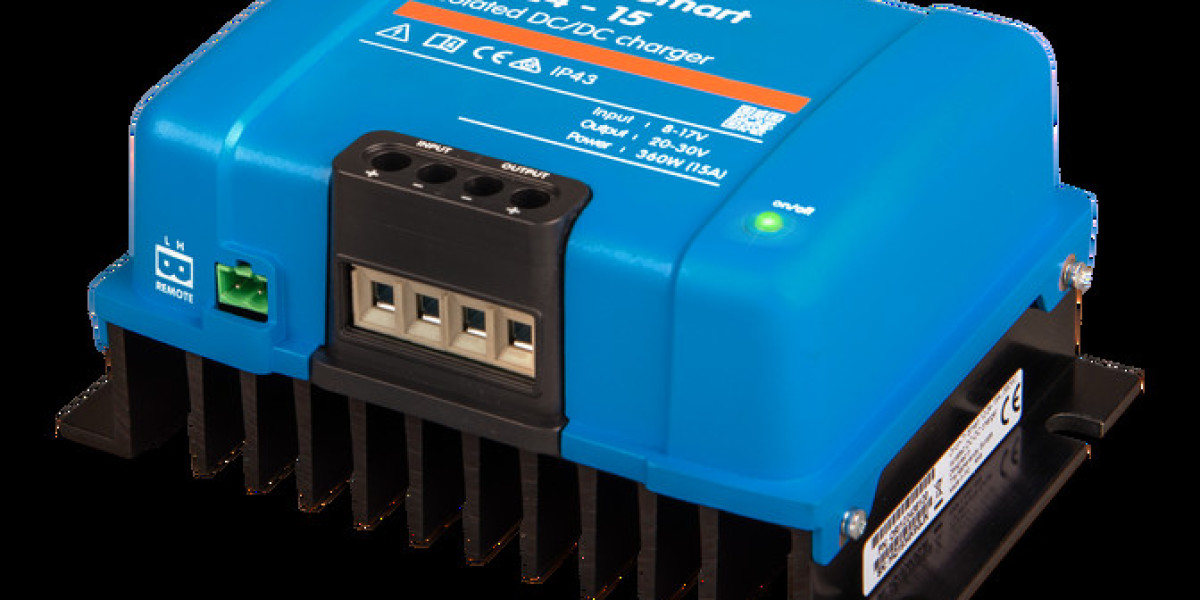In today’s rapidly evolving world of energy management and storage, efficient and reliable battery charging is essential for powering a variety of applications. The 120V/220V AC to 48V 30A AC-DC Lead-Acid Lithium Battery Charger Isolated is an indispensable device used for converting AC power into DC power to charge 48V battery systems. It is suitable for both lead-acid and lithium battery chemistries and is widely utilized in several critical industries, including renewable energy, electric vehicles, and uninterruptible power supplies (UPS). This article provides a comprehensive guide to the charger, explaining its features, applications, and why it is a critical component in modern power systems.
What Is a 120V/220V AC to 48V 30A AC-DC Battery Charger?
The 120V/220V AC to 48V 30A AC-DC Lead-Acid Lithium Battery Charger Isolated is a power conversion device designed to efficiently charge batteries by converting AC power to DC power. This charger operates with either a 120V or 220V AC input, offering flexibility for different geographical regions. It outputs a stable 48V DC at up to 30 amps, which is ideal for larger energy storage systems or electric vehicles.
Key Components:
- Input Voltage (120V or 220V AC): The charger accepts both 120V AC (common in North America) and 220V AC (standard in Europe, Asia, and other regions), making it suitable for international use.
- Output Voltage (48V DC): The charger provides 48V DC, which is a standard voltage used for larger battery banks, especially in energy storage, solar power systems, and backup power solutions.
- 30A Output: The charger delivers a significant amount of current (up to 30 amps), allowing for faster charging times for large batteries, improving efficiency and operational convenience.
- Isolated Design: The charger’s isolated design ensures that the input and output circuits are electrically separated. This feature provides increased safety, reducing the risk of electrical faults or damage.
Features of the 120V/220V AC to 48V 30A AC-DC Battery Charger
A well-designed charger like this comes with several critical features that ensure safety, reliability, and optimal performance. Some of the most important features include:
1. High Efficiency
Efficiency is a key factor in any charging system, especially when dealing with high-capacity batteries. This charger boasts an impressive efficiency rate, typically exceeding 90%, meaning that very little energy is lost in the form of heat. This high efficiency ensures that most of the power is transferred to the battery, speeding up the charging process and reducing energy waste. Efficient charging is particularly important in both renewable energy systems and electric vehicles, where energy conservation is a priority.
2. Dual Input Voltage (120V/220V AC)
The charger is designed to accept both 120V AC (as found in North America) and 220V AC (standard in many countries across Europe and Asia). This feature allows for flexible use in various regions, removing the need for additional adapters or transformers. Whether you are in an area with 120V or 220V input, this charger ensures compatibility, making it versatile for global applications.
3. Wide Compatibility with Lead-Acid and Lithium Batteries
The charger is capable of charging both lead-acid and lithium batteries. Lead-acid batteries are commonly used in off-grid systems, backup power applications, and automotive systems due to their affordability and reliability. Lithium batteries, on the other hand, are favored for their lighter weight, longer lifespan, and higher energy density. The charger’s ability to handle both types of batteries makes it a flexible option for diverse applications.
4. Isolated Design for Safety
Safety is paramount in any power conversion system, and the isolated design of this charger is a major safety feature. By electrically separating the input and output circuits, the charger reduces the risk of electrical faults and minimizes the chances of a short circuit or power surge. This isolation also helps protect the battery from potential damage due to electrical spikes or fluctuations, ensuring both the charger and battery systems remain safe during operation.
5. Overload and Short-Circuit Protection
The charger is equipped with overload protection and short-circuit protection, which prevents damage from excessive current or electrical faults. If the system detects an overload or short circuit, it automatically shuts down or adjusts the charging process to avoid any harm. This ensures that the battery is charged safely and efficiently, while also preserving the longevity of both the charger and the battery.
6. Temperature Control and Monitoring
Charging generates heat, and excessive heat can degrade battery performance or lead to safety issues. Many modern chargers, including this model, include temperature control features. If the charger detects that the temperature is getting too high during the charging process, it will reduce the current or stop charging entirely to prevent overheating. This is crucial for both the safety of the battery and the longevity of the charging system.
7. LED Indicators for Status Monitoring
Most chargers, including this model, come with LED indicator lights that show the charging status. These indicators can show when the charger is operating normally, when the battery is fully charged, or if an error or fault has been detected. This feature makes it easy to monitor the progress of the charging process and take necessary action if any issues arise.
Applications of the 120V/220V AC to 48V 30A AC-DC Battery Charger
This versatile charger is suitable for a wide variety of applications. Its high power output and ability to charge different types of batteries make it essential in many industries. Below are some common applications for the 120V/220V AC to 48V 30A charger:
1. Solar Power Systems
Solar energy systems often use large 48V battery banks to store energy generated by solar panels. These battery banks provide power when sunlight is not available, such as at night or during cloudy days. The 120V/220V AC to 48V charger is ideal for charging the batteries in solar power systems, ensuring that they remain at optimal charge levels for reliable backup power.
2. Electric Vehicles (EVs)
Electric vehicles, including electric cars, scooters, and bikes, often use 48V battery systems to power their motors. The 120V/220V AC to 48V charger ensures that the battery packs in these vehicles are efficiently charged and ready for use. This charger’s high output (30A) allows for faster charging times, which is especially important in keeping EVs operational and minimizing downtime.
3. Uninterruptible Power Supplies (UPS)
In businesses and industries where continuous power is essential, UPS systems are used to provide backup power during grid outages. These systems typically rely on 48V battery banks. The charger is used to ensure that the batteries in these systems are kept fully charged and ready to provide backup power during emergencies, keeping critical systems operational.
4. Marine and RV Applications
For marine vessels and recreational vehicles (RVs), the 120V/220V AC to 48V charger is crucial for keeping battery systems charged. These applications often require high-capacity batteries for lighting, communication, and other onboard systems. The charger ensures that batteries are charged efficiently, enabling reliable power during long trips.
5. Telecommunication Systems
Telecommunication towers and base stations often rely on 48V batteries to maintain communication in case of power grid failures. The 120V/220V AC to 48V charger helps ensure that these batteries remain fully charged, ensuring constant power for the operation of these critical communication systems, especially in remote areas.
Conclusion
The 120V/220V AC to 48V 30A AC-DC Lead-Acid Lithium Battery Charger Isolated is an essential and versatile component for charging 48V battery systems. Its ability to handle both lead-acid and lithium batteries, combined with its high efficiency, safety features, and wide application range, makes it an indispensable tool in industries such as renewable energy, electric vehicles, backup power, and more.
As the demand for energy storage systems, electric vehicles, and sustainable power solutions grows, devices like this charger will continue to play a pivotal role in ensuring these systems operate efficiently and reliably. Whether for solar energy systems, UPS units, or electric vehicles, the 120V/220V AC to 48V 30A charger is crucial for maintaining optimal battery performance, contributing to a more sustainable and energy-efficient future.








